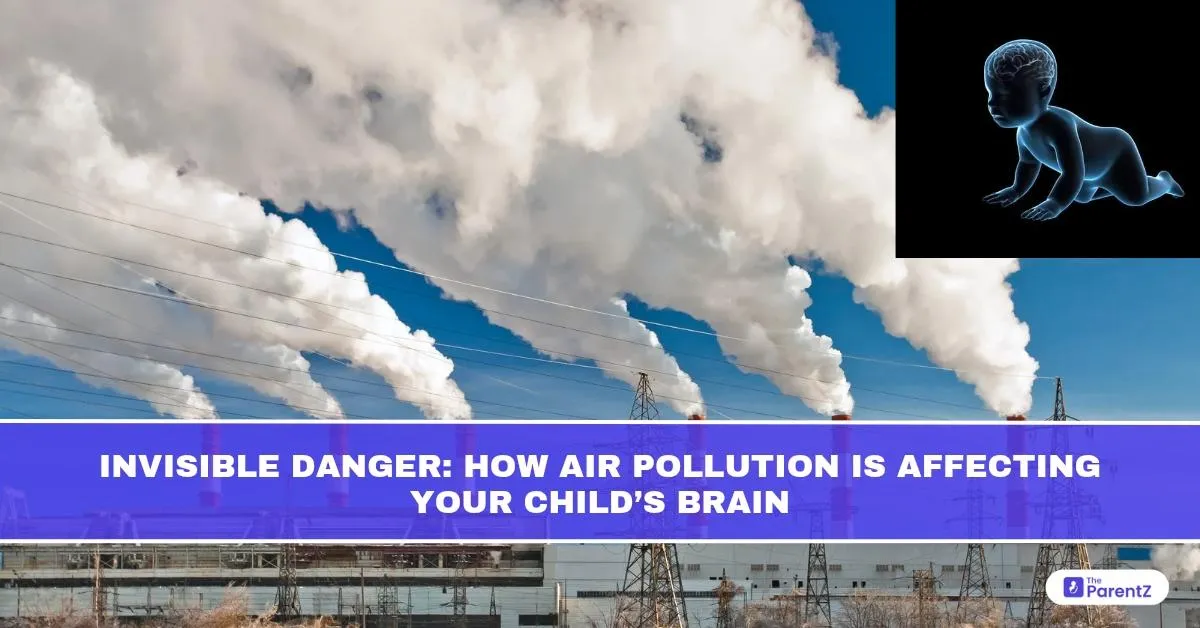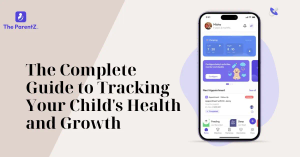The Unseen Threat to Young Minds
We often associate air pollution with coughing, wheezing, or hazy skies. But what if its most dangerous effects are not in the lungs but in your child’s brain?
Emerging research is drawing a clear connection between air pollution and a range of cognitive, emotional, and behavioural changes in children. The same tiny particles that make the air dirty can cross into the bloodstream and even reach the developing brain, quietly disrupting processes essential for memory, learning, focus, and emotional balance.
For many parents, this is a deeply unsettling thought. We cannot always control the air outside, but understanding the risks helps us take meaningful steps to protect our children’s growing minds.
Why Children Are More Vulnerable
A child’s brain is still under construction. It’s rapidly forming new connections, laying down pathways, and pruning what’s not needed. This makes it flexible but also fragile.
There are a few reasons why children are more affected by polluted air:
- They breathe faster, taking in more air and pollutants per body weight than adults.
- Their brain-blood barrier is not fully developed, allowing harmful particles to enter brain tissue more easily.
- They spend more time outdoors, where pollution levels may be high during traffic hours or industrial activity.
According to Mayo Clinic and several peer-reviewed studies on PubMed, this early exposure can influence brain development in both visible and invisible ways.
What Is in the Air That Harms the Brain?
The most harmful components of air pollution for the brain are particulate matter (PM2.5 and PM10) and nitrogen dioxide (NO₂). These come from:
- Vehicle emissions (especially diesel)
- Construction dust
- Industrial waste
- Burning of waste or biomass
- Firecrackers and indoor smoke
These particles are incredibly small. PM2.5 is 30 times thinner than a human hair. When inhaled, they don’t just stay in the lungs. They pass into the bloodstream and can travel all the way to the brain, where they trigger inflammation and oxidative stress, two major disruptors of brain function.
Cognitive Effects: What the Research Shows
Multiple global studies, many referenced in PubMed, have shown links between high air pollution exposure and:
1. Lower IQ Scores and Academic Performance
Children growing up in highly polluted areas tend to have poorer memory, attention span, and lower test scores. One study even showed that children exposed to high PM2.5 levels in early childhood scored significantly lower in language and math in primary school.
2. Behavioural and Emotional Issues
Air pollution has been linked to hyperactivity, aggression, anxiety, and poor impulse control in children. Researchers suspect that inflammation in the brain may be interfering with emotional regulation pathways.
3. Increased Risk of Neurodevelopmental Disorders
Some recent studies suggest a possible link between prenatal and early-life exposure to polluted air and conditions like autism spectrum disorder (ASD) and attention deficit hyperactivity disorder (ADHD). While the link is still being studied, the pattern is concerning enough for pediatric neurologists to pay close attention.
The Prenatal Window: Risk Starts Before Birth
Just like with the gut microbiome, the impact of air pollution can begin before birth.
Pregnant mothers exposed to high levels of air pollution may have babies with:
- Smaller head circumference
- Lower birth weight
- Delayed cognitive milestones
Pollutants can cross the placenta, causing inflammation or reduced oxygen supply to the developing fetus. This can subtly affect brain development during critical windows.
A 2023 meta-analysis published on PubMed confirmed that prenatal exposure to PM2.5 is associated with cognitive delays by age 2–3 years.
Protecting Your Child: What Parents Can Do
While no one can eliminate pollution entirely, there are several simple, science-backed ways parents can reduce their child’s exposure especially during early brain development.
1. Check the Air Quality Index (AQI) Daily
Use AQI apps or websites to monitor local air quality. On poor AQI days (above 150), keep outdoor play indoors, especially for toddlers, school-aged children, and those with asthma.
2. Plan Outdoor Time Smartly
Avoid outdoor play or school commutes during high-traffic hours (typically 7–10 am and 5–8 pm). Choose early mornings or after sunset when pollution levels dip slightly.
3. Create a Clean Indoor Zone
Use air purifiers with HEPA filters in bedrooms and study areas. Indoor plants like spider plant, peace lily, and areca palm can also help purify the air naturally. Keep windows closed during high AQI hours.
4. Avoid Indoor Pollutants
Don’t burn incense sticks, candles, or mosquito coils too often in closed rooms. Minimize use of room fresheners and aerosol sprays. If you cook on gas, ensure good ventilation.
5. Nutrition Matters
A diet rich in antioxidants (fruits, vegetables, nuts) can help the body combat oxidative stress caused by pollution. Omega-3 fats found in flaxseeds, walnuts, and fish also support brain resilience.
Should You Use a Mask?
For children above age 2, N95 or KN95 masks can reduce exposure, especially when stepping out on high-pollution days. However, they must fit well to be effective. Masks are not a long-term solution, but they can offer protection during smog episodes or festivals like Diwali when air quality dips sharply.
What About Schools?
Parents can encourage schools to:
- Install air purifiers in classrooms
- Avoid outdoor assemblies or sports on high AQI days
- Raise awareness among staff about the brain impact. Some progressive schools in Indian cities have already started adapting their schedules based on air quality readings.
Final Words: Don’t Panic, Be Proactive
The idea that polluted air could affect your child’s mind and emotions can feel overwhelming. But knowledge is power.
Every small step, from checking AQI before a park visit to adding more fruits to your child’s plate, builds protection. You’re not just shielding them from pollution; you’re strengthening their brain’s ability to grow, focus, and thrive, even in challenging environments.
The brain is the seat of memory, creativity, love, and learning. And it deserves nothing less than clean, nourishing air.





Be the first one to comment on this story.